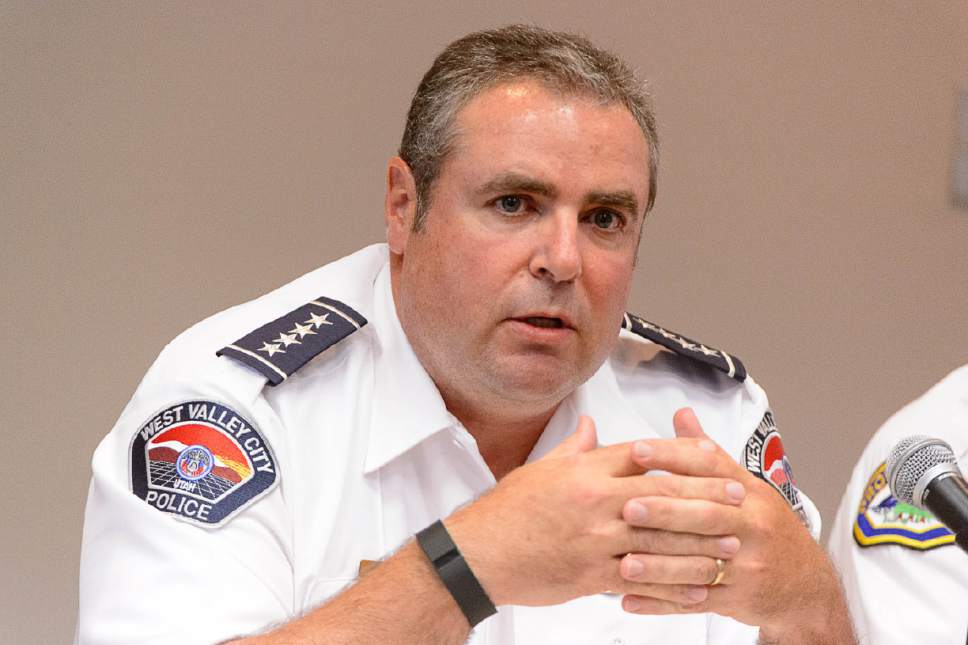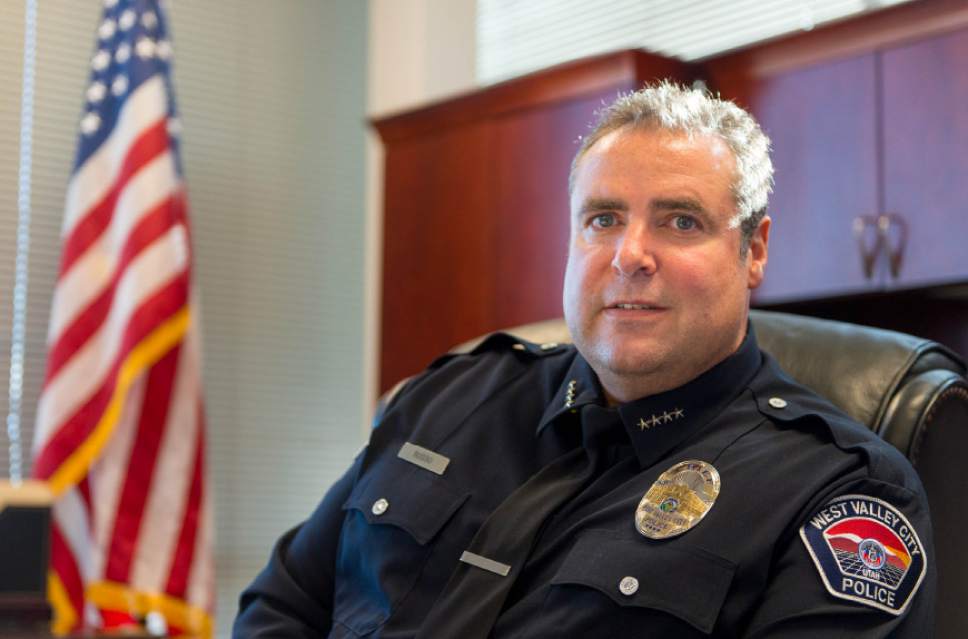This is an archived article that was published on sltrib.com in 2016, and information in the article may be outdated. It is provided only for personal research purposes and may not be reprinted.
Three years after West Valley City's police force was at its worst in terms of public confidence, the department is seeking national accreditation — a higher standard than most agencies across the country.
"It's been a difficult journey," Chief Lee Russo said, "[but] it also shows the quality of the people in this department because they didn't lose faith in the mission that they had to serve our public [despite] the criticism and the challenges."
Less than 5 percent of law enforcement agencies achieve the status, said Russo. The department is in the final phase of the process.
West Valley's public trust predicament followed a string of problems, most notably the controversial shooting of Danielle Willard and an investigation and the eventual disbanding of the Neighborhood Narcotics Unit, which led to the dismissal of more than a hundred criminal court cases.
When Russo was appointed to the force in August 2013, he said, something needed to be done to restore public trust, make the agency more transparent and open a dialogue with the community.
Russo had "grown up" in an agency that was accredited by the Commission on Accreditation for Law Enforcement Agencies (CALEA) and said securing accreditation was the best way for the department to fully review its policies and "look critically at itself."
Requirements for CALEA accreditation include implementing policies and operations best practices as identified by senior law enforcement practitioners, academic researchers and legal professionals.
That eliminates any "struggle between a new chief executive and an existing institution or culture," Russo said.
It also requires more from a police department than just a written policy change.
"It's about doing business consistent with the way you say you're going to do business and holding yourself accountable," the chief said. "That's why it takes three years."
Working toward accreditation has helped the police officers stay focused on victims, he added.
Departments seeking accreditation first must identify ways to improve their agency how they plan to implement CALEA's 190 standards of professional excellence. Once that step is complete, they work with accreditation assessors to identify any areas of weakness.
"They don't just want us to tell them this is the way we do business," Russo said. "We have to show them, and they have to be convinced independently."
Two CALEA assessors — Lt. Darrin Abbink of the Colorado Springs Police Department and Rob Sofie of the Douglas County Sheriff's Office in Nebraska — came to West Valley City in early October to kick off the final phase of its transition to accreditation.
They sought feedback from the community and received a "pretty overwhelmingly positive" response, Sofie said. "There's clearly a flavor, a theme [that] things have changed over the last three years, and it's being favorably received and reported."
The assessors spent days scrutinizing the police force, interviewing and observing employees and making final recommendations for adjustments. Over the next few weeks they'll compile a report, which CALEA's 21 commissioners will review.
WVCPD must also appear at a CALEA commission meeting to answer questions about policies and implementation before a decision about accreditation can be made.
CALEA's next meeting is set for March, Sofie said.
"One of the critical things about this is that it is a voluntary process," Abbink said. "It really kind of points to an agency that is dedicated to improving themselves, dedicated to growing, to be more transparent and really connecting to their community better. ... They're stepping up and saying, 'We want to be better than we are.' "
Studies show that accredited agencies get sued less and even when they do get sued, they're generally lower-cost suits, Sofie said. CALEA's best practices are "not stale," because they are constantly updated, he added.
Accredited agencies are also reassessed every three years, so police departments must constantly work to improve themselves, Sofie said. At this time, none of Utah's law enforcement agencies are maintaining CALEA accreditation.
"I look at this as something that I see will last much longer than myself," Russo said, "that long after I'm gone, these principles and these practices and this culture we're building ... is something that will drive this agency forward."
Twitter: @mnoblenews





